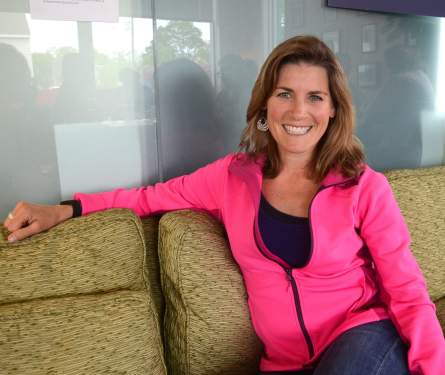
It’s no secret that we Americans have reached an all-time level of being “unhealthy,” thanks to an ever-increasing stress-filled lifestyle. Despite widespread campaigns aimed at helping people stop smoking, eat better and exercise, the vast majority of Americans does not get regular exercise and are not eating enough fruits and vegetables. There is a clear need to empower others to take control of their health and wellness.
There has been an explosion in obesity that is cited as high as 63%, along with climbing rates of diabetes, heart disease, cancer and other diseases associated with lifestyle and behavior choices. As far back as 1996, Harvard Medical School published a 7-year study which confirms up to 70% of all cancer, heart disease, stroke and mature onset diabetes are preventable with lifestyle and behavior changes. And yet, the health of the wealthiest nation in the world continues to decline. These factors underline the importance of a Whole Person based accredited health coaching program.
A Need For Real Health Education
Core factors for this epidemic amongst Americans can be found in a recent government study. The Institute of Medicine published a major study identifying that ninety million Americans are “health illiterate.” This does not mean, in this internet dominant society, that people do not have access to or are not receiving enough health and wellness information. It means that the majority of us do not know how to interpret or use the health information we receive to control or improve our health and wellness or prevent chronic disease. This reveals the need for more Whole Health Educators (TM), Advocates, and Coaches to bridge the gap.
Think of the last time you read the results of a new study in a magazine and realized you did not know how to use that information to support or improve your health. In fact, data presented to the American College of Health Care Executives identifies “lack of information as the number one root cause of death.” Yet, experts like Susan Edgman-Levatin, Executive Director, John D. Stoeckle Center for Primary Care Innovation at Massachusetts General Hospital, acknowledges “It’s no secret that traditional methods of patient education are hopelessly ineffective.”
NIWH Has An Answer
Addressing this problem, as far back as 1977, the National Institute of Whole Health in Boston, Massachusetts, in cooperation with physicians, nurses and online health educators, began research and development on an extraordinary, whole-person focused model of health education. The product of these 30 years of development in Boston area hospitals, the Whole Health Education® accredited health program, has today found its way into the medical mainstream.
These specialized health educators, Whole Health Educators ™, are uniquely trained to maintain a respectful presence and mindful listening skills as well as evidence-based, integrated health sciences to demystify for their clients the five major factors of health that influence how well we are or how sick we become. By providing “the big picture of health”®, an integrated understanding of how these five aspects can cause health or disease, the patient or client can possess the knowledge and tools to make necessary lifestyle changes and behavioral choices that are personally right for them. Identifying the root cause and effect of a chronic condition can free an individual to make changes they may not have previously considered.
You Are The Solution
There’s something that students and alumni of NIWH’s accredited health program have already discovered. If you are looking for work with purpose and integrity and are a health care professional, or entry-level candidate, who desires to serve others by providing evidence-based health information, and a natural, spiritual outlook on healing, this program may be of interest to you. NIWH offers Holistic Nurse Certification and Health Coach Certification. Program are offered through distance learning as well as optional in-person weekend classes, conducted at a Harvard affiliate hospital in the Boston area, which includes nationally recognized health experts and outstanding core facility members. For more information visit www.niwh.org or call 888-354-HEAL (4325)
Join the conversation. If you enjoyed this article, be sure to follow NIWH on Facebook and Twitter for regular updates filled with accredited health program information for holistic nurses and whole health coaches or advocates.



